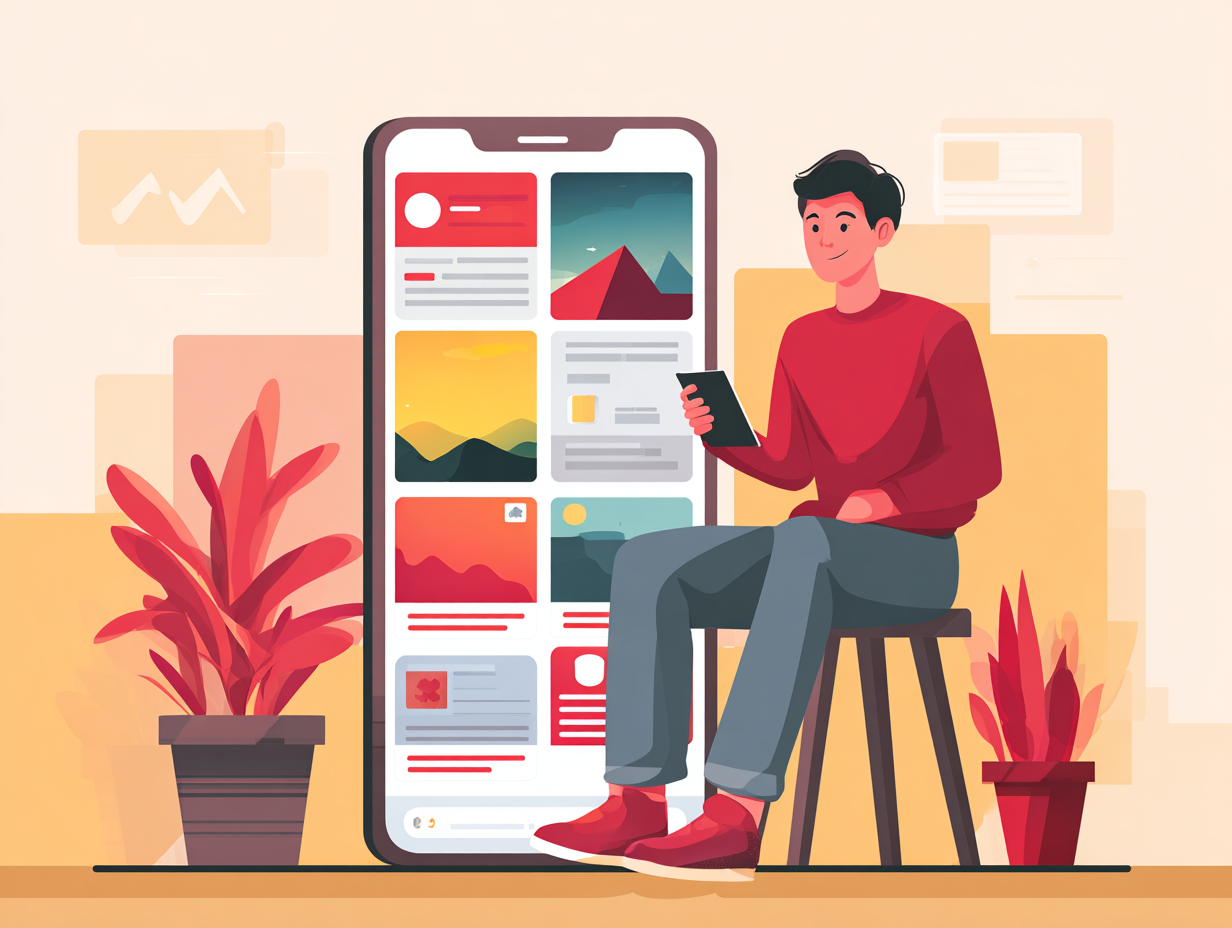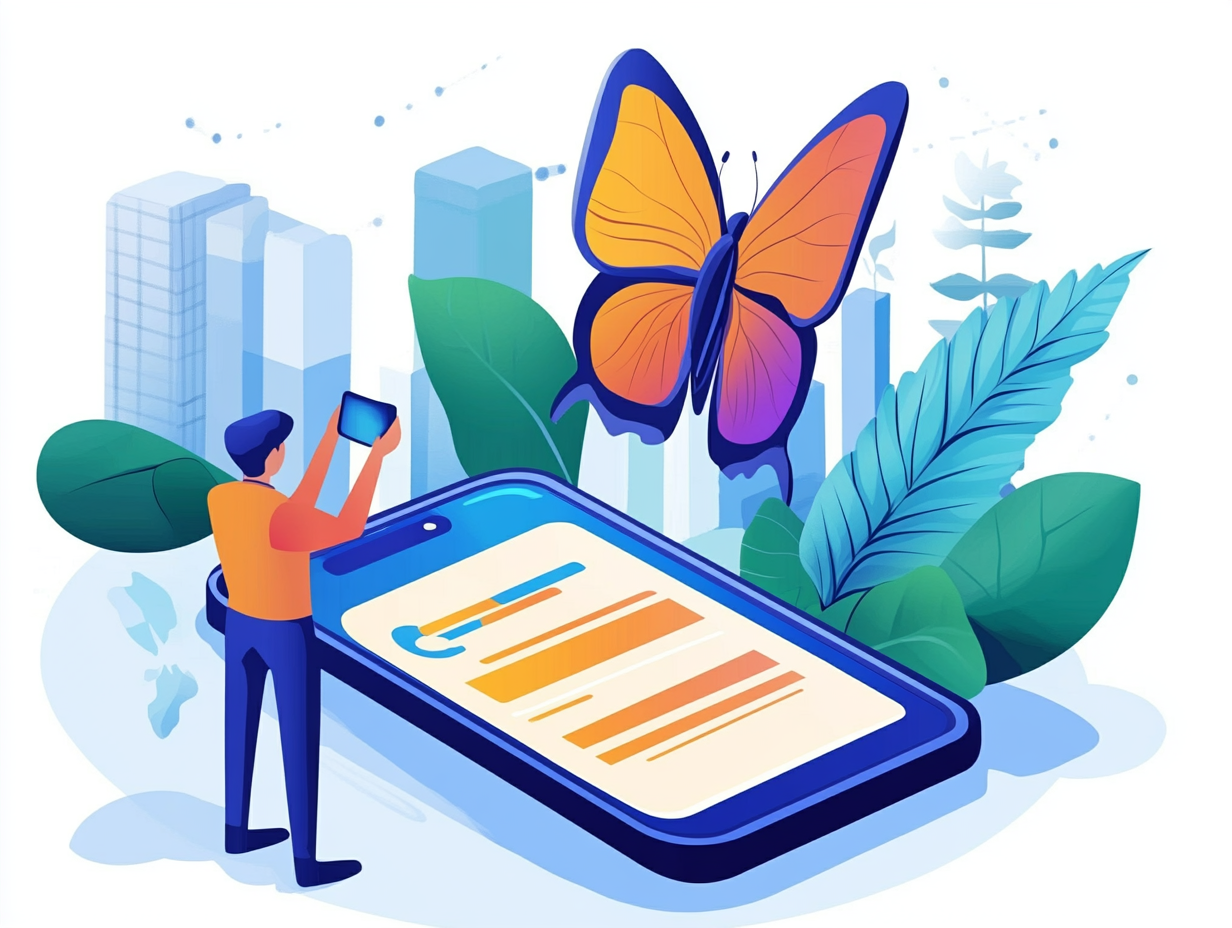
Building a great app is just the beginning. The real challenge is turning your creation into a sustainable business. With over 5 million apps in app stores, successful monetization requires more than just hope—it demands strategy, testing, and optimization.
This comprehensive guide reveals proven monetization strategies used by top-grossing apps. From freemium models to subscription strategies, you'll learn how to maximize revenue while providing value to your users. Whether you're launching your first app or optimizing an existing one.
FREEMIUM MODEL: HOOK THEN CONVERT
The freemium model offers basic features for free while charging for premium features. When executed properly, it can achieve conversion rates of 2-5% and generate massive user bases.
// Freemium Feature Gate Implementation
class FeatureGateManager {
static bool canAccessFeature(String featureId, User user) {
final feature = FeatureRegistry.getFeature(featureId);
// Check user subscription status
if (user.isPremium) return true;
// Check feature limits for free users
switch (feature.type) {
case FeatureType.usage_limited:
return _checkUsageLimit(feature, user);
case FeatureType.premium_only:
return false;
case FeatureType.trial_available:
return _checkTrialAccess(feature, user);
default:
return true; // Free feature
}
}
static bool _checkUsageLimit(Feature feature, User user) {
final usage = UserUsage.getUsageCount(user.id, feature.id);
final limit = feature.freeLimit;
if (usage >= limit) {
// Show upgrade prompt
_showUpgradeDialog(feature, user);
return false;
}
// Show usage progress to encourage upgrade
if (usage >= limit * 0.8) {
_showUsageWarning(feature, user, usage, limit);
}
return true;
}
static void _showUpgradeDialog(Feature feature, User user) {
final benefits = PremiumBenefits.getForFeature(feature.id);
showDialog(
context: navigatorKey.currentContext!,
builder: (_) => UpgradeDialog(
title: "Unlock ${feature.name}",
subtitle: "You've reached the free limit",
benefits: benefits,
ctaText: "Upgrade to Premium",
onUpgrade: () => _handleUpgrade(user, feature.id),
onDismiss: () => Analytics.track('upgrade_prompt_dismissed', {
'feature': feature.id,
'user_tier': user.tier,
}),
),
);
}
// A/B test different upgrade prompts
static void _handleUpgrade(User user, String triggeredByFeature) async {
final variant = ExperimentManager.getVariant(user.id, 'upgrade_flow');
switch (variant) {
case 'trial_first':
await PremiumTrial.startTrial(user, duration: Duration(days: 7));
break;
case 'discount_offer':
await PaymentManager.showDiscountOffer(user, discount: 0.3);
break;
case 'annual_push':
await PaymentManager.showAnnualOffer(user, extraMonths: 2);
break;
default:
await PaymentManager.showStandardUpgrade(user);
}
Analytics.track('upgrade_initiated', {
'variant': variant,
'triggered_by': triggeredByFeature,
});
}
}💡 Freemium Success Tips:
- • Make free version genuinely useful, not frustrating
- • Create clear value differentiation between tiers
- • Use progressive limitation, not hard walls
- • Time upgrade prompts strategically
- • Show premium benefits throughout the free experience
SUBSCRIPTION MODEL: RECURRING REVENUE
Subscriptions provide predictable recurring revenue and higher lifetime value. Top subscription apps generate 95% of mobile app revenue despite representing only 5% of downloads.
// Subscription Management System
class SubscriptionManager {
static Future<List<SubscriptionPlan>> getOptimizedPlans(User user) async {
final userProfile = await UserAnalytics.getProfile(user.id);
final plans = await SubscriptionService.getAllPlans();
// Personalize plan order based on user behavior
final optimizedPlans = plans.where((plan) {
// Show annual plan first for high-engagement users
if (userProfile.engagementScore > 0.8) {
return plan.isAnnual;
}
// Show monthly for price-sensitive users
return !plan.isAnnual;
}).toList();
// Add limited-time offers for churning users
if (userProfile.churnRisk > 0.6) {
optimizedPlans.insert(0, _createDiscountedPlan(user));
}
return optimizedPlans;
}
static Future<void> handleSubscriptionFriction() async {
// Track abandonment points
PaymentFlow.onAbandon = (step) async {
Analytics.track('subscription_abandon', {'step': step});
// Implement step-specific recovery
switch (step) {
case 'plan_selection':
await _offerPlanGuidance();
break;
case 'payment_info':
await _simplifyPaymentForm();
break;
case 'confirmation':
await _addTrustSignals();
break;
}
};
}
// Smart trial strategy
static Future<TrialConfig> getOptimalTrial(User user) async {
final userBehavior = await BehaviorAnalyzer.analyze(user);
// Longer trials for complex apps, shorter for simple ones
final trialDuration = userBehavior.complexity > 0.7
? Duration(days: 14)
: Duration(days: 7);
// Credit card required vs not based on user profile
final requiresCard = userBehavior.conversionLikelihood > 0.5;
return TrialConfig(
duration: trialDuration,
requiresCreditCard: requiresCard,
features: _getTrialFeatures(userBehavior),
reminders: _getTrialReminders(trialDuration),
);
}
// Prevent subscription churn
static Future<void> implementChurnPrevention() async {
// Monitor usage patterns
final risks = await ChurnPredictor.getHighRiskUsers();
for (final user in risks) {
final strategy = await _getRetentionStrategy(user);
switch (strategy.type) {
case RetentionType.engagement:
await _sendEngagementBoost(user);
break;
case RetentionType.discount:
await _offerRetentionDiscount(user);
break;
case RetentionType.feature:
await _showcaseUnderutilizedFeatures(user);
break;
case RetentionType.support:
await _proactiveSupport(user);
break;
}
}
}
// Win-back campaigns for churned users
static Future<void> runWinBackCampaign(User churned) async {
final timeSinceChurn = DateTime.now().difference(churned.churnDate!);
if (timeSinceChurn.inDays == 30) {
await _sendWinBackOffer(churned, discount: 0.5);
} else if (timeSinceChurn.inDays == 90) {
await _sendFeatureUpdates(churned);
} else if (timeSinceChurn.inDays == 180) {
await _sendFinalWinBackAttempt(churned);
}
}
}🔄 Subscription Best Practices:
- • Offer free trials to reduce purchase friction
- • Use annual plans to improve LTV and reduce churn
- • Implement graduated pricing tiers
- • Monitor and optimize trial-to-paid conversion
- • Build strong churn prevention and win-back systems
IN-APP PURCHASES: MICRO-TRANSACTIONS
In-app purchases allow users to buy digital goods or premium features individually. Gaming apps generate over $60 billion annually through this model.
// In-App Purchase Implementation
class InAppPurchaseManager {
static Future<void> optimizePurchaseFlow() async {
// Dynamic pricing based on user profile
final user = await User.getCurrent();
final pricing = await _getPersonalizedPricing(user);
// A/B test different purchase presentations
final variant = ExperimentManager.getVariant(user.id, 'purchase_ui');
switch (variant) {
case 'bundle_focus':
await _showBundleOffers(pricing);
break;
case 'individual_items':
await _showIndividualItems(pricing);
break;
case 'limited_time':
await _showTimeLimitedOffers(pricing);
break;
}
}
static Future<PricingStrategy> _getPersonalizedPricing(User user) async {
final spendingProfile = await UserAnalytics.getSpendingProfile(user.id);
final region = await LocationService.getUserRegion(user.id);
// Adjust pricing based on purchasing power parity
final basePrice = 2.99;
final adjustedPrice = PricingEngine.adjustForRegion(basePrice, region);
// Dynamic discounts for high-value users
if (spendingProfile.isHighValue) {
return PricingStrategy.premium(adjustedPrice * 1.2);
} else if (spendingProfile.isPriceSensitive) {
return PricingStrategy.value(adjustedPrice * 0.8);
}
return PricingStrategy.standard(adjustedPrice);
}
// Virtual currency system
static Future<void> implementVirtualCurrency() async {
final economy = VirtualEconomy();
// Multiple earning methods
economy.addEarningMethod(EarningMethod(
type: 'daily_login',
amount: 50,
description: 'Daily check-in bonus',
));
economy.addEarningMethod(EarningMethod(
type: 'achievement',
amount: 100,
description: 'Complete achievements',
));
economy.addEarningMethod(EarningMethod(
type: 'video_ad',
amount: 25,
description: 'Watch rewarded videos',
));
// Spending opportunities
economy.addSpendingMethod(SpendingMethod(
type: 'premium_content',
cost: 200,
description: 'Unlock premium features',
));
economy.addSpendingMethod(SpendingMethod(
type: 'cosmetic_upgrade',
cost: 150,
description: 'Customize appearance',
));
// Balance virtual and real currency
economy.setExchangeRate(realToVirtual: 100); // $1 = 100 coins
}
// Purchase analytics and optimization
static Future<void> optimizePurchaseFunnel() async {
final analytics = PurchaseAnalytics();
// Track funnel steps
analytics.trackStep('item_viewed');
analytics.trackStep('purchase_initiated');
analytics.trackStep('payment_method_selected');
analytics.trackStep('purchase_completed');
// Identify drop-off points
final funnel = await analytics.getFunnelAnalysis();
// Optimize worst-performing steps
for (final step in funnel.getWorstSteps()) {
switch (step.name) {
case 'purchase_initiated':
await _optimizePurchaseButton();
break;
case 'payment_method_selected':
await _streamlinePaymentOptions();
break;
case 'purchase_completed':
await _fixTechnicalIssues();
break;
}
}
}
// Smart upselling
static Future<void> implementSmartUpselling(User user, String itemId) async {
final purchaseHistory = await PurchaseHistory.get(user.id);
final recommendations = await RecommendationEngine.getUpsells(
user: user,
currentItem: itemId,
history: purchaseHistory,
);
// Show contextual upsells at the right moment
if (recommendations.isNotEmpty) {
await _showUpsellDialog(recommendations, timing: 'post_purchase');
}
}
}💰 IAP Optimization Tips:
- • Use virtual currency to abstract real money costs
- • Create multiple price points and bundles
- • Implement smart upselling and cross-selling
- • A/B test purchase UI and messaging
- • Provide alternative earning methods for currency
AD-BASED MONETIZATION
Advertising can generate significant revenue when implemented thoughtfully. The key is balancing ad revenue with user experience to maintain engagement and retention.
// Advanced Ad Implementation
class AdMonetizationManager {
static Future<void> implementRewardedAds() async {
final adManager = RewardedAdManager();
// Strategic ad placement
adManager.addPlacement(AdPlacement(
id: 'extra_life',
trigger: 'game_over',
reward: GameReward(type: 'life', amount: 1),
description: 'Watch ad to continue playing',
));
adManager.addPlacement(AdPlacement(
id: 'double_coins',
trigger: 'level_complete',
reward: CurrencyReward(multiplier: 2.0),
description: 'Double your reward!',
));
adManager.addPlacement(AdPlacement(
id: 'premium_content',
trigger: 'content_locked',
reward: AccessReward(duration: Duration(minutes: 30)),
description: 'Unlock premium features temporarily',
));
}
// Smart ad frequency management
static Future<void> optimizeAdFrequency(User user) async {
final tolerance = await AdToleranceAnalyzer.analyze(user);
final engagement = await UserEngagement.getLevel(user);
AdFrequencyManager.setLimits(
interstitial: AdLimit(
maxPerSession: tolerance.interstitialTolerance,
minTimeBetween: Duration(minutes: 3),
respectUserPreferences: true,
),
banner: AdLimit(
maxConcurrent: engagement.isHighlyEngaged ? 1 : 0,
autoHide: true,
contextualPlacement: true,
),
rewarded: AdLimit(
maxPerHour: 10, // Higher limit as these are opt-in
userInitiated: true,
),
);
}
// Ad revenue optimization
static Future<void> optimizeAdRevenue() async {
final mediationManager = AdMediationManager();
// Waterfall optimization
await mediationManager.optimizeWaterfall([
AdNetwork.admob,
AdNetwork.facebook,
AdNetwork.unity,
AdNetwork.applovin,
]);
// A/B testing ad formats
final adFormat = ExperimentManager.getAdFormat(userId);
switch (adFormat) {
case 'native_blend':
await _showNativeAds();
break;
case 'interstitial_moments':
await _showInterstitialAtNaturalBreaks();
break;
case 'rewarded_focus':
await _emphasizeRewardedAds();
break;
}
// Real-time bidding optimization
await mediationManager.enableRealTimeBidding(
timeout: Duration(milliseconds: 5000),
fallbackToWaterfall: true,
);
}
// User experience protection
static Future<void> protectUserExperience() async {
final uxProtector = AdUXProtector();
// Prevent ad overload
uxProtector.addRule(UXRule(
type: 'session_limit',
limit: 5,
scope: Duration(minutes: 30),
penalty: AdPenalty.reduce_frequency,
));
// Respect user actions
uxProtector.addRule(UXRule(
type: 'dismiss_streak',
threshold: 3,
action: AdAction.pause_interstitials,
duration: Duration(hours: 2),
));
// Smart timing
uxProtector.addRule(UXRule(
type: 'engagement_context',
condition: 'high_focus_activity',
action: AdAction.defer_until_break,
));
}
// Hybrid monetization strategy
static Future<void> implementHybridStrategy(User user) async {
final userProfile = await UserProfile.analyze(user);
if (userProfile.isLikelyToPay) {
// Focus on IAP and subscriptions
await _emphasizePremiumFeatures(user);
await _minimizeAds(user);
} else if (userProfile.isAdTolerant) {
// Maximize ad revenue
await _optimizeAdPlacements(user);
await _offerAdFreeSubscription(user);
} else {
// Balanced approach
await _implementFreemiumWithAds(user);
}
}
}📺 Ad Monetization Tips:
- • Prioritize rewarded video ads over interstitials
- • Use ad mediation to maximize fill rates and eCPM
- • Implement ad frequency capping to prevent user fatigue
- • A/B test ad placements and formats
- • Offer ad-free subscriptions as an alternative
REVENUE OPTIMIZATION FRAMEWORK
📊 KEY METRICS
- • Average Revenue Per User (ARPU)
- • Lifetime Value (LTV)
- • Conversion rate (free to paid)
- • Monthly Recurring Revenue (MRR)
- • Churn rate and retention
🔧 OPTIMIZATION TACTICS
- • A/B test pricing and packaging
- • Implement dynamic pricing
- • Optimize onboarding for conversion
- • Use behavioral triggers for upgrades
- • Implement win-back campaigns


